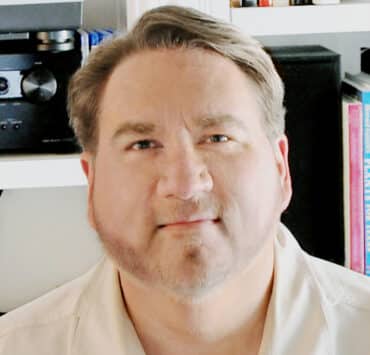|
Getting your Trinity Audio player ready...
|
While Sam Olive, director of intellectual property at Splunk, might feel a twinge of envy when a developer draws up an innovative solution on a whiteboard, he knows that his seat at the decision-making table has value. Based in San Francisco, Splunk develops and sells products designed to investigate, monitor, analyze, and act on data at any scale. Olive joined the company three years ago, after spending the prior twelve years at law firms in Washington, DC, and Seattle, Washington.
“The highest compliment I’ve been paid since I started here,” Olive says, “was from one of the business leaders. He came to me and said how much his engineers enjoyed meeting with our team and talking.” He adds, “I really want the business to see us as an ally, not as an impediment. Because once you’re viewed as an impediment, that’s when they stop talking to you.”

The conversation between Olive and software engineers is unencumbered because he understands them. He was once one of them. As a child, he loved building Construx and LEGO sets, and as an undergraduate at the University of Notre Dame, he studied computer science. Shortly after graduation, he attended William & Mary Law School.
As it turns out, his engineering background has benefited his legal career. “I can speak their language,” he says about developers, programmers, and other members of Splunk’s patent team. “And that lack of a need for translation means one, I get more honest answers. And two, it burns fewer cycles. I don’t have to have someone with their foot in both worlds, translating their answers.”
In addition to relating to colleagues, Olive sees problem-solving parallels between engineering and the law. “Being an engineer turned out to be great prep for law school and being a lawyer,” he says. “No matter what kind of lawyer you’re going to be, being an engineer forces you to think analytically, sift through a bunch of data, pick out what’s important, and then make decisions based on the important data.”
Data analysis was an impetus for his move to an in-house position where “data and metrics are part of my everyday world.” Data-driven decision-making aids in increasing transparency and developing efficiencies, both for short-term results and long-term strategies. For example, data has changed how his team argues for patents before an examiner from the US Patent and Trademark Office. They track which arguments work in front of which examiners and then use that to shape future responses.
The downside of being numbers driven is the risk of losing “your way in the weeds” of data collection and analysis, which, in turn, can slow down processes.
“You have to be able to move quickly with the business, and you’re not giving your in-house clients good service if you’re constantly waiting on more data or afraid to make decisions on incomplete data,” he says. “The temptation to wait on just one more metric, report, or data point is seductive. But you can’t be afraid to make decisions once you have enough data, even if there’s more out there that could be collected.”
In addition to metrics, a key point of emphasis during Olive’s time at Splunk is the company’s transition to cloud-based technology and the mass adoption of that technology by its customers—or, as Splunk puts it, the move to go “all in on cloud.”

“The thing that surprised all of us was how quickly this boulder started rolling once we nudged it,” he says. “We thought the pivot to cloud would take years. And then once we gave that option to our customers, the speed of adoption and how quickly they wanted to transition to cloud surprised even us.”
Previously, the majority of customers used Splunk’s enterprise products on their internal networks. Now, by transitioning to Splunk’s cloud-based offerings, customers have “fewer things to worry about,” according to Olive. Gone are the dedicated server rooms and hard reboots following a quarterly update. Updates happen frequently, with some Splunk products updating several times a week. That way, “we can deliver a better experience and a faster experience,” Olive explains.
Olive credits mentors with teaching him that an attorney’s goal is to make life easier for the client; legal should provide answers, not more questions. A lesson he practices is that every communication and interaction should carry momentum toward a solution.
“If you’re not bringing people closer to a solution, if you’re not bringing people closer to an actionable thing that they can work on, then you’re not servicing them,” he says. “You’re not helping.”

